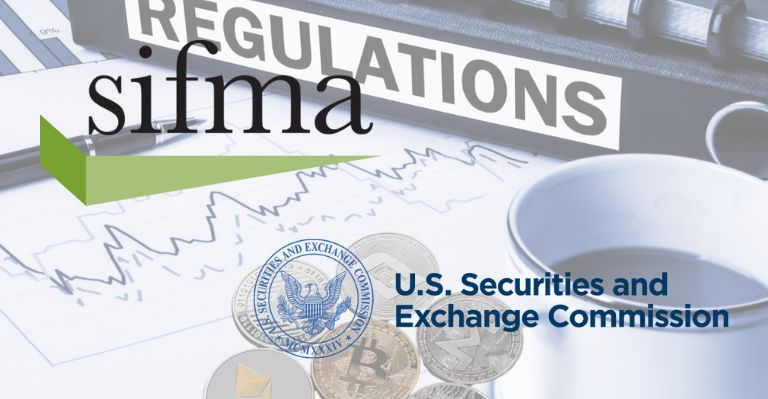TL;DR
- SIFMA urged the SEC’s Crypto Task Force to replace patchy no-action letters with a unified digital-asset rulebook covering tokenized securities, commodities, and on-chain services.
- The industry group called for a modernized disclosure regime under existing Securities Acts, clear functional separation (exchanges vs. custody), and tiered retail protections for complex offerings.
- SIFMA pressed for a full notice-and-comment rulemaking process with technology-neutral definitions and cross-border alignment to marry traditional market rigor with blockchain innovation.
The Securities Industry and Financial Markets Association (SIFMA), which represents almost 90% of the U.S. financial market, has urged the SEC’s Crypto Task Force to reform the regulation of digital assets. In a high-profile meeting on July 3, SIFMA urged the Commission to swap piecemeal guidance for a comprehensive rulebook that keeps pace with innovation while safeguarding investors.
Meeting the SEC’s Crypto Task Force
SIFMA’s delegation, comprising broker-dealers, asset managers, and investment banks, sat down with the SEC’s specialized crypto staff to dissect key pain points in digital asset issuance. Their agenda covered three pillars: tokenized securities, digital commodities, and new on-chain services. The industry group stressed that today’s patchwork of no-action letters and bespoke exemptions simply isn’t fit for a maturing market.
Advocating a Modernized Disclosure Regime

Central to SIFMA’s pitch is expanding existing disclosure requirements under the Securities Acts of 1933 and 1934. Firms issuing tokenized equities or debt should file standard prospectuses, detailing everything from smart-contract mechanics to custody models. By weaving digital assets into established reporting frameworks, SIFMA argues, the SEC can deliver clarity for issuers and confidence for investors without reinventing the wheel.
Ensuring Functional Separation and Retail Protections
SIFMA also pushed for clear lines between key market functions, exchanges versus broker-dealers, and trading versus custody, to prevent conflicts of interest and market concentration. The group backed limits on direct retail participation in complex digital securities, recommending that innovative offerings first target institutional buyers until robust protections are proven. This tiered approach seeks to balance access with prudence.
Embracing Open Rulemaking and Cross-Border Consistency
Instead of fast-track no-action relief, SIFMA demanded a full notice-and-comment rulemaking process. They called for technology-neutral definitions of digital securities and commodities and urged the SEC to factor in cross-border harmonization, so U.S. rules don’t clash with international standards. Transitional provisions would accommodate hybrid products, ensuring that regulations evolve alongside emerging blockchain models.
As SIFMA awaits the SEC’s next public guidance, the industry group stands ready to collaborate on drafting a unified crypto framework. Their proposal aims to marry the rigor of traditional capital markets with the agility of blockchain innovation, paving the way for a transparent, competitive, and investor-friendly digital asset ecosystem.

